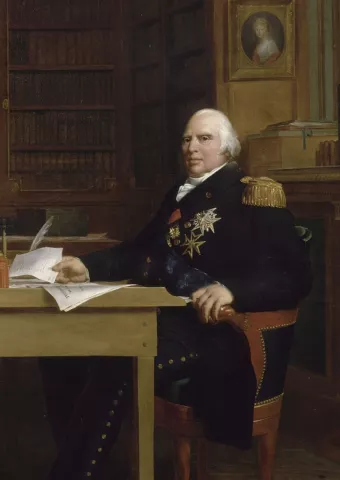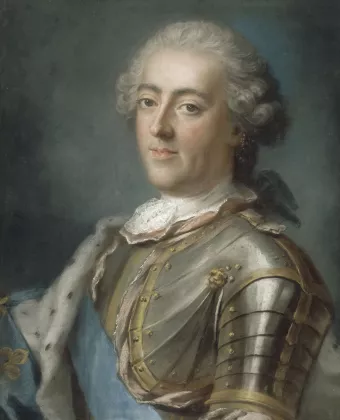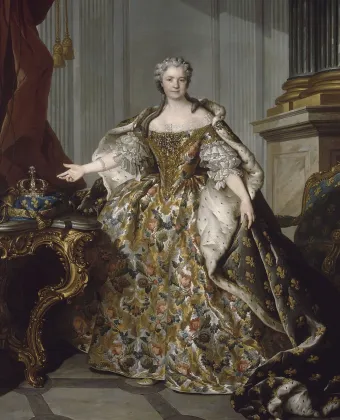As the younger son of the Dauphin Louis, son of Louis XV, and Maria Josepha of Saxony, Louis Stanislas Xavier held the title of Count of Provence and was heir to the throne until the birth of the eldest son of his older brother, Louis XVI, in 1781. Born and raised in Versailles, the prince was imbued throughout his life with the refined culture of the dying Ancien Régime, and held the highest opinion of his birth and rank. He was also the most politically involved of Louis XV’s three grandsons.
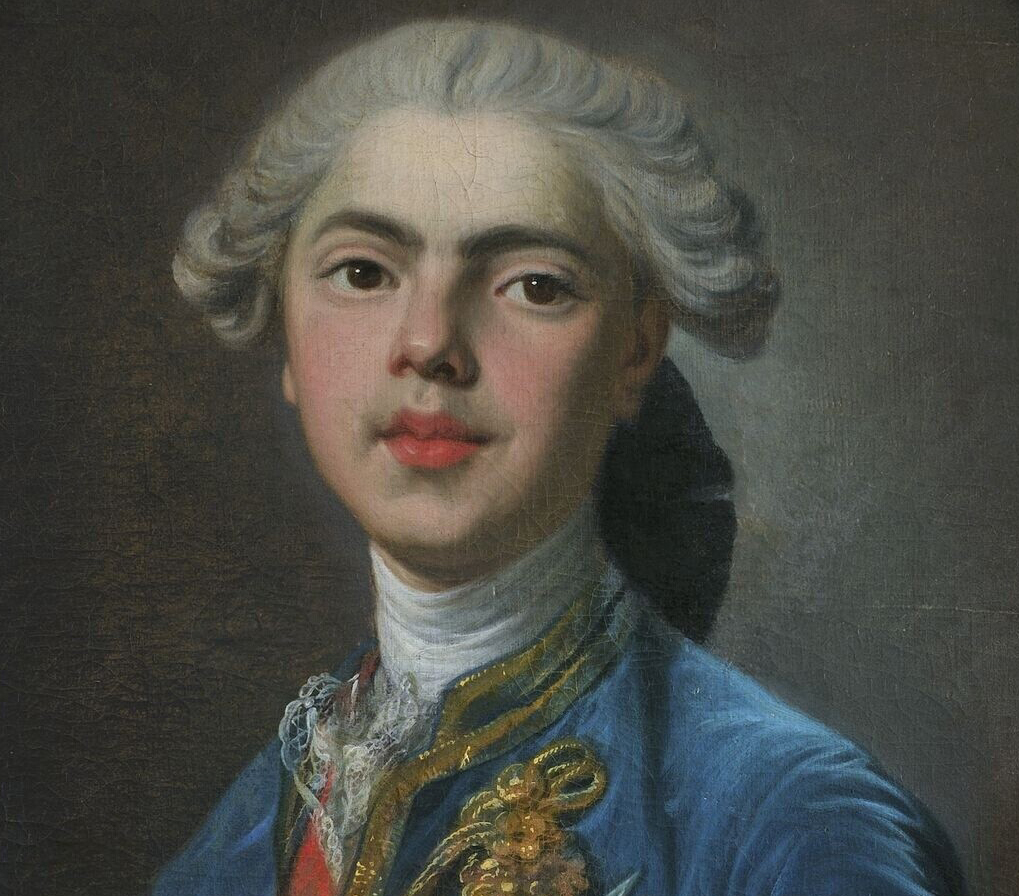
The Count of Provence, future Louis XVIII
© Château de Versailles, Dist. RMN / © Jean-Marc Manaï
From the French Revolution to the Restoration
He played a complex and nebulous game during the Revolution, awaiting his chance but remaining close to the King, his brother, until the flight to Varennes in June 1791. Leaving by another route, he succeeded in crossing the border and began a long period spent roaming across a Europe united against his homeland.
After declaring himself King of France under the name of Louis XVIII when his nephew, Louis XVII died in 1795, he managed to maintain a semblance of Court, which guaranteed him the esteem he needed to hold his rank. He continued to strive to exercise his right to the French crown and affirm his legitimacy in the face of revolutionary France and European monarchies. With the help of powerful allies, he returned to France in 1814 and finally took the throne, officially becoming Louis XVIII, “by the grace of God, King of France and Navarre”.
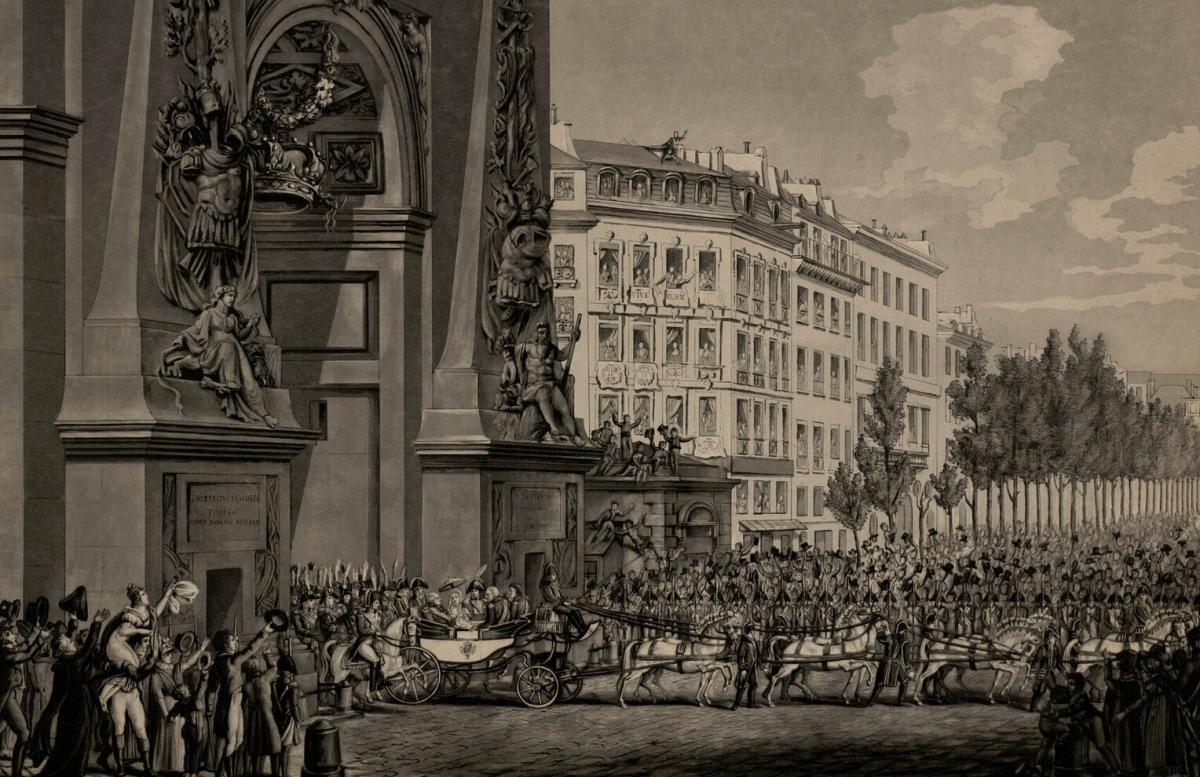
The solemn entrance of HM Louis XVIII into Paris by Porte Saint-Denis on 3 May 1814
© Château de Versailles
Louis XVIII and Versailles
The young Count of Provence, who married Marie Joséphine of Savoy in 1771, lived in two successive apartments in Versailles, the first in the central section of the palace (1774-1787) below the Queen's Apartments, and the second in the end pavilion in the South Wing (1787-1789), which was named after him as the “Pavilion of Provence”.
After becoming king, he naturally planned to move to Versailles and launched major renovation work in the historical apartments in 1814-1815, accompanied by commissions to refurnish them. Forced to leave by the return of Napoleon during the Hundred Days (March-July 1815), he later returned definitively to France in the summer of 1815, this time renouncing the palace of his forebears with wisdom and political pragmatism.



